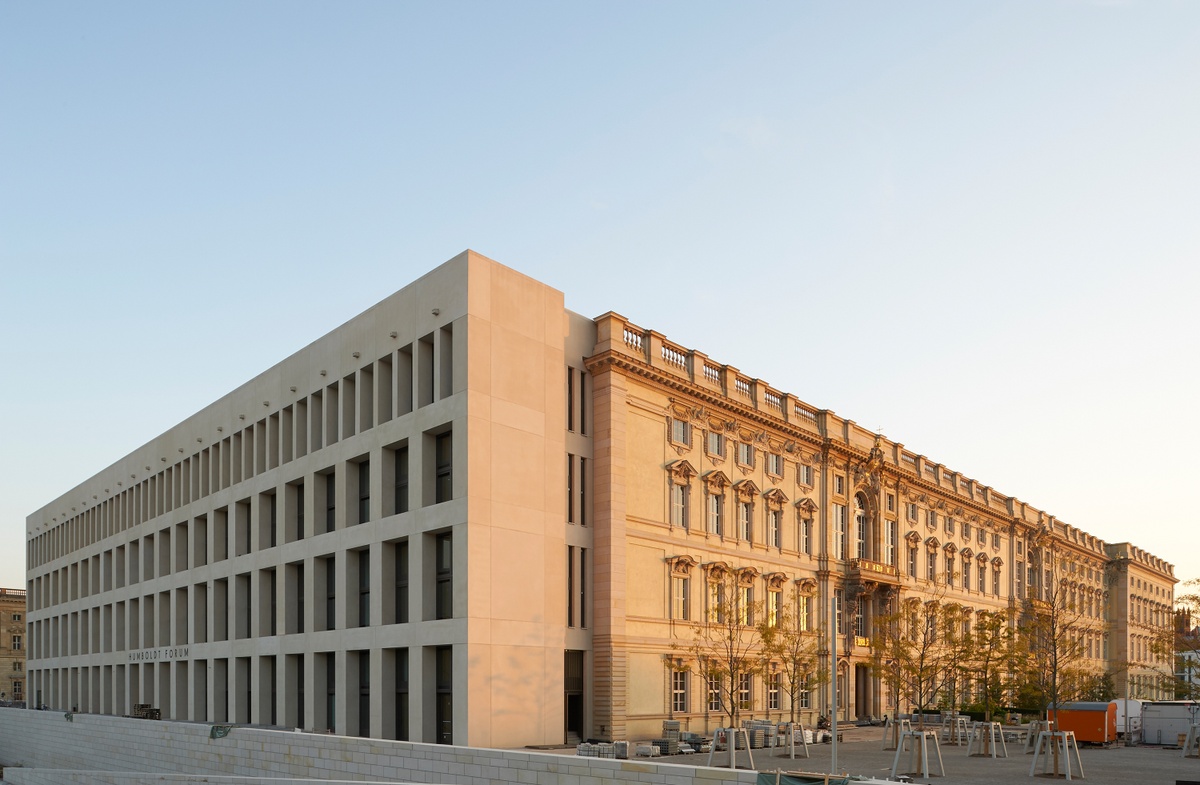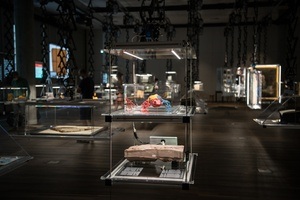
Kulturerbe-Dialoge. Museen, Restitution und Community Engagement in Kamerun
In the organizer's words:
Join us for an exciting discussion with Rachel Mariembe, Verena Rodatus, Maria Ellendorff and Drossilia D. Igouwe on the central themes of collaborative research and cultural preservation.
How can museums serve as places of remembrance and preservation of cultural goods? Why are archives so crucial for the restitution of Cameroon's cultural heritage? We will discuss these questions and more, including the important role of local communities in the promotion and development of regional tourism.
Community museums and their role as a powerful tool for cultural preservation, education and sustainable development will be an important topic of discussion.
With insights that will inspire not only professionals, but anyone interested in the intersection of culture, history and community engagement, this discussion offers a unique opportunity. Learn how cultural heritage, restitution and collaborative approaches can shape the future of heritage preservation and empower local communities in a sustainable way.
PARTICIPANTS
Dr. Rachel Mariembe holds a PhD in Heritage Science. She is the Head of the Department of Heritage and Museum Studies at the Institute of Fine Arts, University of Douala, Nkongsamba and Coordinator of the Heritage Science Laboratory of the Faculty of Arts and Heritage Studies, Graduate School of Social Sciences and Humanities, University of Douala. She was involved in the creation of seven community museums in Cameroon as well as the exhibition Sur la Route des Chefferies du Cameroun: Du visible à l'invisible at the Musée du Quai Branly Jacques Chirac in France.
Dr. Mariembe is intensively involved in provenance and partnership research and in raising awareness among local decentralized authorities of the importance of promoting cultural heritage. She was instrumental in the preparation of the application for the inclusion of the Nguon Festival in the Representative List of the Intangible Cultural Heritage of Humanity. She also led the application for the inclusion of the city of Nkongsamba in the UNESCO Creative Cities Network, which led to the city's inclusion in the network in October 2023.
Dr. Verena Rodatus is the curator responsible for the collections of West and Southern Africa at the Ethnologisches Museum Berlin. From 2015 to 2021, she was a research assistant in the Department of African Art at Freie Universität Berlin. She has been researching and working in West Africa since 2003. Her research focuses on historical, modern and contemporary art and visual culture from Africa and the diaspora, critical museum studies and postcolonial theory. As a curator, she played a key role in the restitution of cultural assets illegally exported from Cameroon during the period of German colonialism.
Maria-Antonie Ellendorff is deputy curator for the collections of West and Southern Africa at the Ethnologisches Museum Berlin. Since 2024, she has been responsible in particular for coordinating the Cameroon section and promoting exchange between artists, researchers and other stakeholders. From July to December 2024, she will also take on the position of Restitution Coordinator as part of the Collaborative Museum project, a joint initiative of the Ethnologisches Museum and the Museum für Asiatische Kunst.
Drossilia D. Igouwe (M.A.) has been a scientific museum assistant in the Africa department of the Ethnologisches Museum in Berlin since July 2024. She is currently completing her doctorate at the University of Augsburg on the reassessment of the catch objects in the Lübeck Kulturen der Welt collection, which were collected during the German colonial period, primarily by Günther Tessmann (1884-1969). In 2020, 2021 and 2022, her doctoral thesis led her to conduct field research in southern Cameroon, Equatorial Guinea and Gabon.
PARTNER
Rarchel Mariembe is a CoMuse Fellow at the Ethnologisches Museum and the Museum für Asiatische Kunst.
CoMuse - The Collaborative Museum is an initiative of the Ethnologisches Museum and the Museum für Asiatische Kunst that aims to develop multi-perspective approaches to collection-based research and to test new formats for collaborative processes in order to sustainably intensify the decolonization and diversification of museum practice.
The CoMuse Fellowship program is supported by Künstlerhaus Bethanien, which provides a studio for artistic and scientific research.
- free of charge
- no ticket required
- Language: English
- Location: Mechanical Arena in the foyer
Location
You might enjoy this as well?















